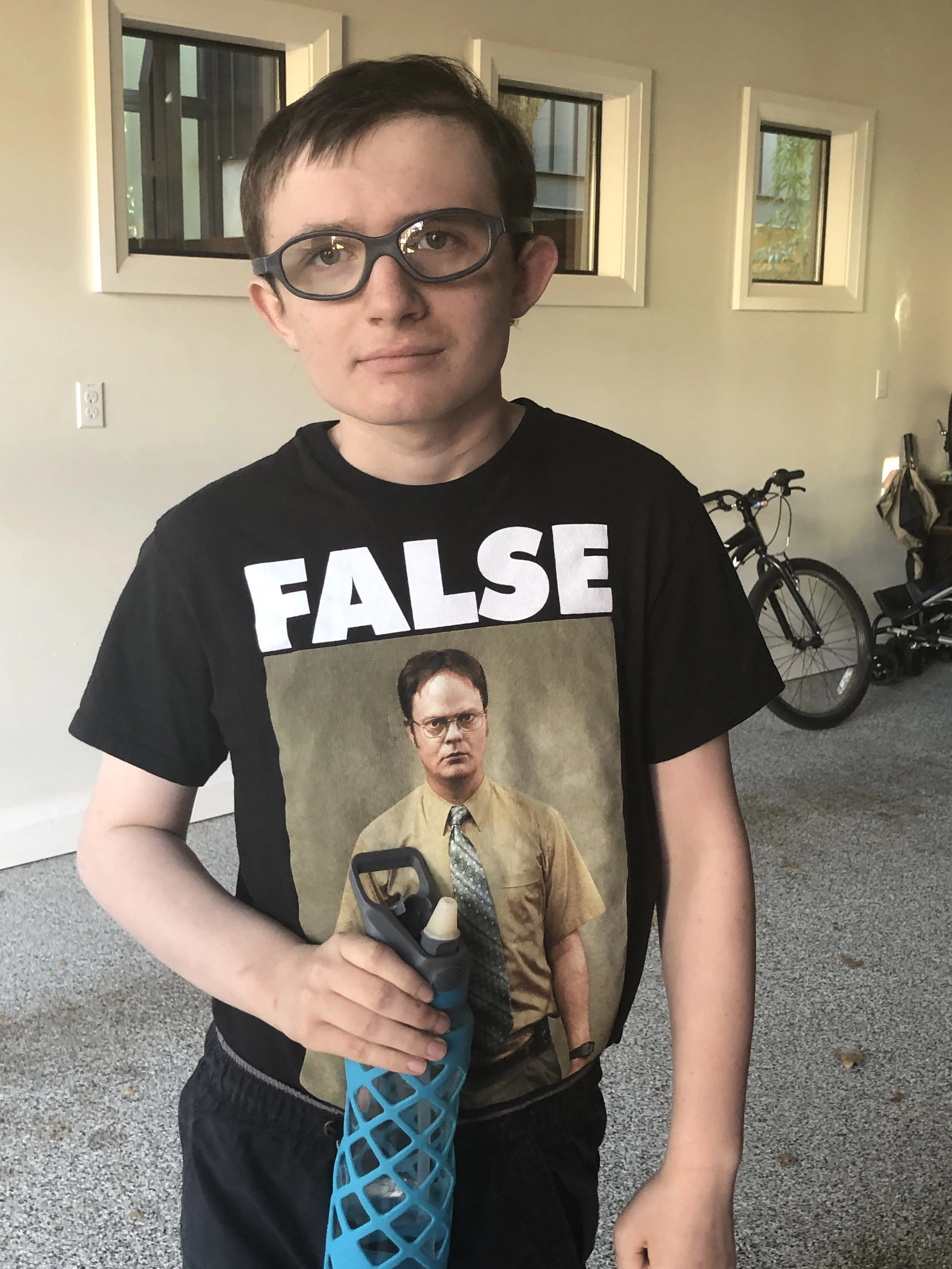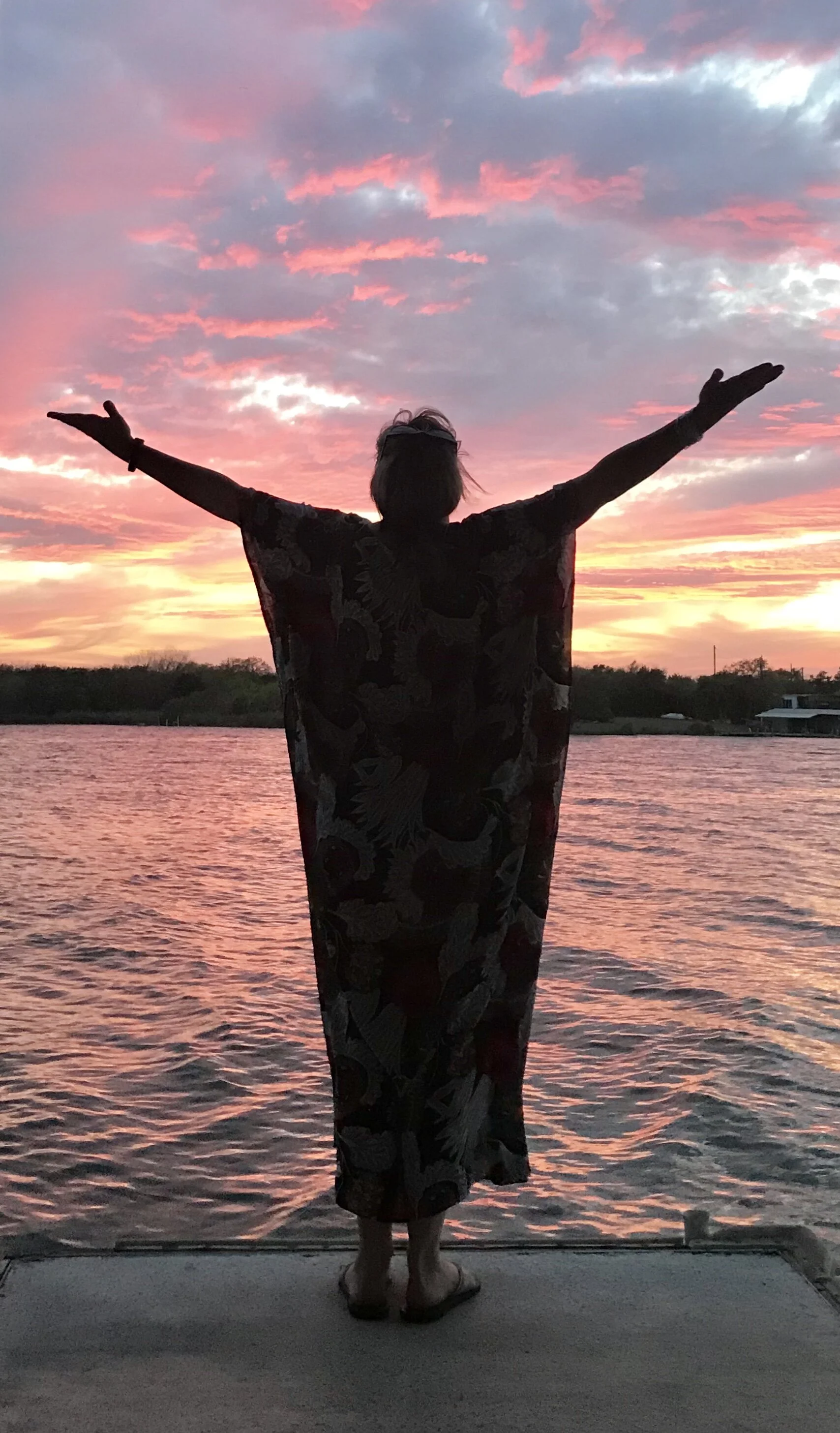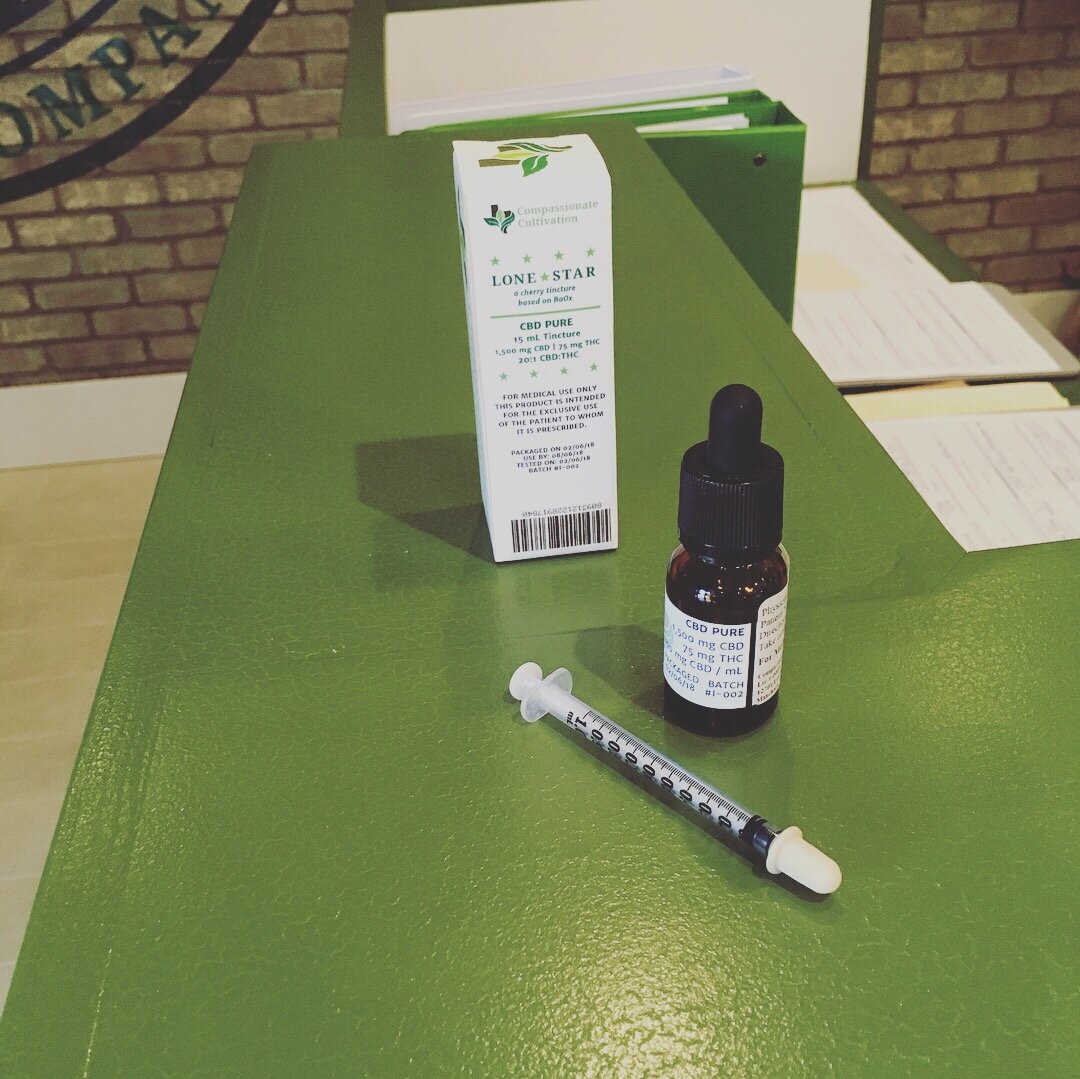Fifty-eight
We learned that M was having what are referred to as 'sub-clinical seizures' when he was about eight years old. He had never developed typically, and we had known he had many challenges before his first birthday, but between the ages of five and seven we saw a devastating loss of skills happen right before our eyes and we needed to figure out why. All language was lost. His gait changed and his feet splayed outward when he walked. He lost toilet training skills (he thankfully gained most of that back eventually) His personality changed and my once happy little boy started having more meltdowns and became less and less interested in engaging with the outside world. Our family became more isolated as going to restaurants or on vacations became challenging and unpleasant. During that first EEG the brain spikes were noted in his right temporal lobe and when we checked again a year later they had spread to the left. M's neurologist in California, where we were living at the time, said that she thought he might have a disorder called Landau Kleffner and prescribed the first of his dreadful anti-convulsant drugs (Depakote) with the hope that in three months time he would come back into her office and be able to speak to her. How could I not try something that could possibly give my son his voice back? But that wasn't to be the outcome of this experiment. Two weeks later I witnessed one of the most horrifying things I have ever seen. My child's body was completely overcome by this awful drug and I genuinely feel I was close to losing him that night. We were told to stop the medication immediately.
The neurologist went on to tell us that it wasn't a matter of 'if' we would see visible seizures one day, it was a matter of when. That 'when' would come in 2014 when he was 11-years-old and we were living back in Texas. I am about to lay out a truth bomb that maybe (hopefully?) doesn't sound as awful to you as it was to me given the chain of events that occurred. I made a very poor parenting decision that summer and left M and B home literally for a few minutes while I was down the street with my dog. Finding babysitters had become a challenge that summer, and the idea of hiring one for a walk with the dog seemed unnecessary since M was watching a movie and is not a very active boy, and B had the phone next to him in case he needed to contact me. I got the worst phone call within minutes of leaving...well, not THE WORST phone call...but pretty damned close. My baby was crying so hard into the phone telling me that his brother was dying. He had just seen the movie 'Old Yeller' and told me M was like Old Yeller and was frothing at the mouth. I immediately called my next door neighbor and dear friend because I knew she could get there faster than I could. M was coming out of his seizure as I walked in the door. I called 911 thinking that was how you handle these sorts of things and not fully understanding that what had occurred was in fact a seizure. The paramedics came and told me they recommended me taking him to the hospital. My friend drove us, and on the way I called one of M's specialists who he had been working closely with at the time to tell him what had happened. He urged me to not take M to a hospital as he would likely just need to go home and sleep. I am so grateful he gave me that advice and avoided us having to go through the triage process. We turned around and sure enough, M just needed to rest. This was the beginning of our journey into the world of intractable epilepsy. I have no idea how many seizures M had over the next year and a half, but they were infrequent enough (yet scary as hell when they happened) that we didn't jump to trying a new seizure medication. I should backtrack a bit here and mention that in 2013 we did the most extensive genetic testing available at the time, Whole Exome Sequencing. We did not find a definitive label for what we believe is likely a genetic syndrome affecting our child, but we did learn that M's genetics made it highly likely that he would not properly metabolize two classes of drugs: anti-depressants and anti-seizure. We also learned from this test that he has some markers that indicate mitochondrial dysfunction. Guess what? People with mitochondrial dysfunction should never be prescribed Depakote!
Unfortunately the seizures started becoming more frequent and more frightening and our neurologist warned us that if we didn't try some sort of intervention our son very well could die. At this point, M's seizures would last approximately four minutes. He would stop breathing, turn blue and aspirate. (He still does this, unfortunately) We could no longer risk not trying some sort of intervention so we reluctantly tried the next drug, trileptal. Within three days his teachers called to tell me of a horrible meltdown he had at school. He was pulling his hair, screaming and crying and had literally jumped on top of a desk...this from a boy with low muscle tone who is not very active. We were again told to stop the drug immediately and soon after began our third prescribed anti-seizure drug that we are still using today, lamictal. You have to ramp up the dosage extremely slowly on this drug as there is a life-threatening side effect of a rash that requires hospitalization and can lead to death. (Awesome to have to play roulette with your child and risk a rash that could kill him, huh?!) Perhaps it was the slow ramp up that allowed this drug to give M minimal success and relief in the form of reducing the seizures in half, from approximately four minutes to two. We have titrated this medicine to the highest recommended dosage and then backed off a bit from that when it made my boy stumble like a drunk person and vomit on his way into school. We remain on this drug today because we are scared to try anything else. And to add fuel to the fire, when M was recently diagnosed with moderate chronic kidney disease, the number of 'safe' anti-seizure drugs available to us was greatly reduced.
When patients get to this point and cannot effectively stop the seizure activity, the next step is usually to do a 24-EEG to see where the activity is centralized in the brain and then to do a lobectomy. I know plenty of people who have gone this route. I know plenty of people who still have seizures despite it. M's doctor felt that given his kidney disease, she was not willing to risk this type of brain surgery and suggested we have a VNS or Vagus Nerve Stimulator implanted. We recently met with the brain surgeon and while we feel somewhat more comfortable with this as a possible option down the road, we are still hesitant to put him through this type of procedure given that it likely won't completely stop the seizures either. Again, we have been warned that not controlling M's seizures can lead to death. This is the reality we live with daily and in a weird way you get used to taking such an awful risk because there is still no guarantee that these other procedures will do the trick. And so here I am on February 5th, 2018 counting down the next three days until I get to drive to Compassionate Cultivation to purchase high cbd/low thc, legitimate, medicinal cannabis to try on my boy. Because when I began typing this this blog entry I had logged his 58th grand mal seizure in two years. (When I finally began doing so) This one occurred while my husband was giving him a shower. I am certain this represents only a fraction of the seizures he has had during that time as we will often find him in his bed in the post-seizure stupor of a hard sleep that we feel confident was from a seizure we didn't witness. And then there are all the times when he is likely having absent seizures, but we aren't 100% sure. Any way you look at it, that's a lot of damage that has been done to my beautiful boy's brain, and the effects have been devastating.
There are many people who feel very frustrated by the Texas Compassionate Use Program. One of the biggest concerns is that it will allow only the 150,000 Texans suffering from intractable epilepsy access to this cbd medicine...and that is if their doctor becomes registered to prescribe it after the patient has failed two pharmaceutical drugs. I share the frustration that this program is restrictive and does not offer this natural plant to be used in the treatment of more qualifying conditions. And I also share in the concern that some patients will need access to the whole marijuana plant, not just the cbd. Doctors, not politicians, should be able to make the decision of how much thc a patient should get. All that said, I am over the moon giddy and hopeful about what this may be able to do for my child. We have been using a hemp-based cbd-only product for the past four months and although it has not stopped his seizures, we have seen the most amazing change in my son's demeanor. He seems to be in pain less often. His bowel movements are more regular. (Anyone who has experience with ulcerative colitis or other GI disorders know how wonderful a thing this is) But most importantly, he smiles and laughs more, and chooses to be around us more often than he has in years. I feel like I've been given some of my child back; and with the less frequent aggressive or self-injurious episodes, I feel like I'm able to catch my breath a little and just enjoy being with him rather than always feeling nervous he is going to turn on me and attack me. Even though TCUP only allows for .5% thc in the medicine we will be using, the thought of what this could do for M-- and subsequently for our family--is thrilling to me, and I am grateful to be a part of this turning tide.
We have an exciting week ahead of us! Stay tuned for more!






